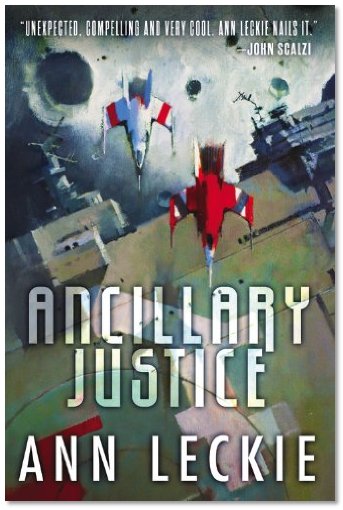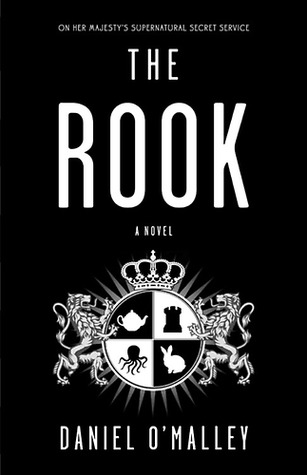Happy new year, everyone!
I don't know about you guys, but the holidays tire me out. December went by in a flash, and by the time New Year's rolled around I found myself lacking the energy to do anything but lie on my bed and read, in which pursuit I spent a glorious New Year's weekend. Immersed in the fabulous Ancillary Sword by Ann Leckie, and then by the various worlds presented in George R. R. Martin's Rogues anthology, I got to thinking a lot about worldbuilding.
For a speculative fiction writer, worldbuilding is one of the most important parts of structuring the story you want to tell. You have to find a good balance between giving the reader a complete picture of the world you've imagined, and giving them so much information that the story gets lost inside the encyclopedia you're dumping on them. It's really easy to fall down on either side of that line, and the authors who walk it best manage to deliver their worldbuilding so casually you barely realize it's happening.
In that vein, I compiled a list of a few of the best examples of worldbuilding in fantasy and sci-fi, both as a reference for myself as a writer when I find myself mired in the hows and whys of my worlds, and for everyone else to enjoy and hopefully add to.
the Imperial Radch series by Ann Leckie - I imagine it's really hard to find a way to explain "My main character used to be a ship with thousands of bodies all controlled by her AI, but now all but one of the bodies are dead and she has to pretend to be human." But Leckie manages to do just that, and to give her narrator a place within a detailed and politically complex sci-fi universe, without infodumping even once. Some might argue she errs on the side of obscurity, and there were certainly places at the beginning of the book where I was a little confused, but the picture comes together at a slow but steady pace, and the final product is seriously, seriously cool.
When Gravity Fails by George Alec Effinger - While the plot in this book isn't the tightest one might wish from a murder mystery, the worldbuilding is outstanding. The city of the Budayeen is so vivid I can picture it in my mind even years after having read the book, same goes for the technology and weapons described. It's a textured blend of a place, it feels real even though it's unmistakably full of sci-fi elements. This is a case where the world is built effortlessly through the narrator's voice, as he travels through the social strata of the city trying to catch a murderer; you don't even realize how much of the picture is painted in until you step back and look at it from a distance.
When Gravity Fails by George Alec Effinger - While the plot in this book isn't the tightest one might wish from a murder mystery, the worldbuilding is outstanding. The city of the Budayeen is so vivid I can picture it in my mind even years after having read the book, same goes for the technology and weapons described. It's a textured blend of a place, it feels real even though it's unmistakably full of sci-fi elements. This is a case where the world is built effortlessly through the narrator's voice, as he travels through the social strata of the city trying to catch a murderer; you don't even realize how much of the picture is painted in until you step back and look at it from a distance.
the Gentlemen Bastard sequence by Scott Lynch - This is my favorite book series being published right now, full stop. Lynch takes a fairly straightforward approach to worldbuilding, but he's clearly given his world an insane amount of thought, and there are just as many passages of description as there are casual allusions to things that help fill in the picture around the action. Camorr itself, the city setting of the first book, is like a Renaissance-era Venice if it were made by aliens and populated by the Mafia. But every city we've visited with Lynch, from Tal Verrar to Old Theradane, just straight-up feels like a real place. He knows just what details to give to make you feel the cobblestones under your feet and taste the wine on your tongue.
Dune by Frank Herbert - One of the greatest examples of sci-fi where the world is built through context. There's almost no info-dumping in Dune, just a lot of contextual allusions to important things that allow the reader to put together a complete picture of the worlds we visit. Like concentric circles, Herbert builds the Atreides family, the way they integrate with the Fremen society, the Fremen's place on Arrakis, and Arrakis's place in the universe, so casually you hardly realize he's doing it. Getting a POV on the Harkonnens, and the excerpts from Princess Irulan's writings, rounds out the bits we'd miss by sticking just with Paul's POV.
The Rook by Daniel O'Malley - In a story where your main character is a member of the British Supernatural Secret Service, coworker of vampires and dreamwalkers and sociopaths who inhabit four bodies at once, how to avoid the infodump factor? Easy-- make your character lose her memory and have to learn everything about her world all over again. I love epistolary fiction to begin with, and I really loved that The Rook is told half through letters from Myfanwy to her future memory-wiped self. Though there are sections that are heavy with information, it doesn't feel egregious because it's new to the character as well as the reader. Also, the inner structure of the agency is both brilliant and intuitive, so it's not hard to understand how the pecking order works.
the Harry Potter series - Similar to The Rook, a really great way to introduce your world to your audience is through the eyes of a character to whom everything is totally new. How better to ease us into the Wizarding World than by taking us, literally, to school there? It's pretty brilliant that Harry's new to being a wizard entirely, and not just new to the idea of Hogwarts-- his newbie status allows for continued worldbuilding throughout the series. My favorite use of this is probably in Book 5 when we learn about the Ministry's inner workings and St. Mungo's Hospital.
Any other examples of stellar worldbuilding you think I've left off the list? Shout 'em out in the comments, and I'll see you next time.
--emily



Oh man, Boneshaker sounds AWESOME. I'd like to add The Sirens of Titan, which did feature what you might call info dumping, but done in such good style that it never brought me out of the story.
ReplyDeleteBoneshaker *is* awesome, it's definitely one of my favorite books, you should check it out!
DeleteAnd I've never read the Sirens of Titan, but I'll add it to my list. Thanks for the rec! :D I think long descriptions can work if they're part of the story-- I actually would add Patrick Rothfuss's The Name of the Wind in that category, he's got a looooot of description rolling around in there, but it feels streamlined.